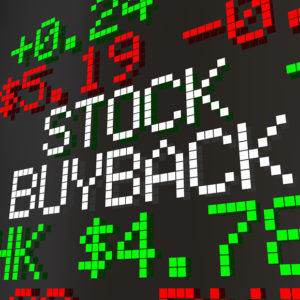Faced with the COVID-19 pandemic, large corporations are once again the Grinch. But this Grinch is even more heartless. This Grinch did not steal people’s Christmas; it took people’s money.
Big firms have always had a reputation for being too focused on making a profit and squashing mom-and-pop shops. This time, however, their transgression is taking stimulus money destined for small firms. The worst offenders, some claim, then take those funds and use it to buy back their own shares with the intent of lining their executives’ own pockets.
The claim is born out of headlines highlighting large companies — the likes of Ruth’s Chris and Shake Shack, among others — applying for and receiving funds from the government under the Payroll Protection Program. The PPP was created with the intention of shoring up small firms, not big companies.
Some of these companies gave the money back, but the reputational damage was done.
The reality is that larger firms were supposed to be helped through different packages. One of the earliest ones to be disclosed — the Main Street Loan Program — was meant to be provided by the Federal Reserve, but took longer to launch. In addition, the specifics of the program took weeks to flesh out.
Who can get funds? How much can a firm receive? For what purposes can it be used? What interest would be charged? Would the loans have recourse?
So, with no end in sight to the COVID-19 crisis, some larger firms applied for and received the PPP. The problem was exasperated by the $349 billion cap placed on the first PPP scheme.
Were these large corporations out of place applying for the PPP? With the benefit of hindsight, yes. But if we had been in these firms’ shoes back in early April — when Armageddon was all but possible — we may have made the same decision.
There is also no evidence that publicly traded firms applying to the PPP used those funds to buy back their own shares. Unfortunately, that does not matter: As Warren Buffett recently said, it is now politically correct to be against share buybacks.
Buying back shares is loathed by the majority of the general public. Americans often view share buybacks as a way of enriching shareholders, while keeping shop-floor employee pay lower than it could be.
It does not help that share buybacks have a direct impact on most CEOs’ pay. One of the most common pay-for-performance metrics is Earnings Per Share. When shares are bought back, EPS goes up, as there are fewer shares outstanding, and a CEO’s pay package increases.
But buying back shares is not inherently a terrible idea — or an “immoral” one, as Buffet put it. It is an important capital allocation decision and a key way of returning funds to shareholders, who provide the firm with much-needed capital to fund their operations.
The immorality lies in tainting the capital allocation decision-making process by making one alternative more attractive to management, regardless of whether it is the one that creates the most value.
Main Street’s ire is not only placed on firms that use government funds to buy back shares, but also on those that have bought back shares in the past and are now in need of cash. As the pandemic cripples our economy, funds initially used to buy back shares could now be very useful.
Having studied the Dow 30 components’ share buybacks over the last five years, we determined that such firms have destroyed nearly $8 billion in value. Ideally, a large company would issue shares when the price is high and buy them back when it is low, relative to their intrinsic value.
This implies that either CEOs are truly terrible at one of their key tasks — capital allocation — or that there is indeed a bias toward share buybacks given its effect on variable pay.
Given all of this, a ban or restriction on share buybacks for firms that receive government bailout is an appropriate way to go. After all, why should the taxpayer be on the hook when the firm could have been better prepared to face a Black Swan event?
Restrictions contemplated in current bailout programs do not go far enough. If a firm receives government funds, the bailout should cover mid- and lower-level employees (including a restatement of share options, if any were provided) and suppliers, but not senior management, shareholders or bondholders.
And, after the COVID-19 crisis is averted, taxpayers need to come first. Firms should not be able to purchase back any shares for a period of 10 years or until all government funds plus interest are paid back.
Following this period, firms should be restricted to purchase only up to 2 percent of their shares per year, up to a total of 10 percent over a 10-year period. Share-based compensation must not be allowed until the government is repaid.
Roll back share buybacks, and Americans have less of an excuse to call large companies the “Grinches” of our time.

